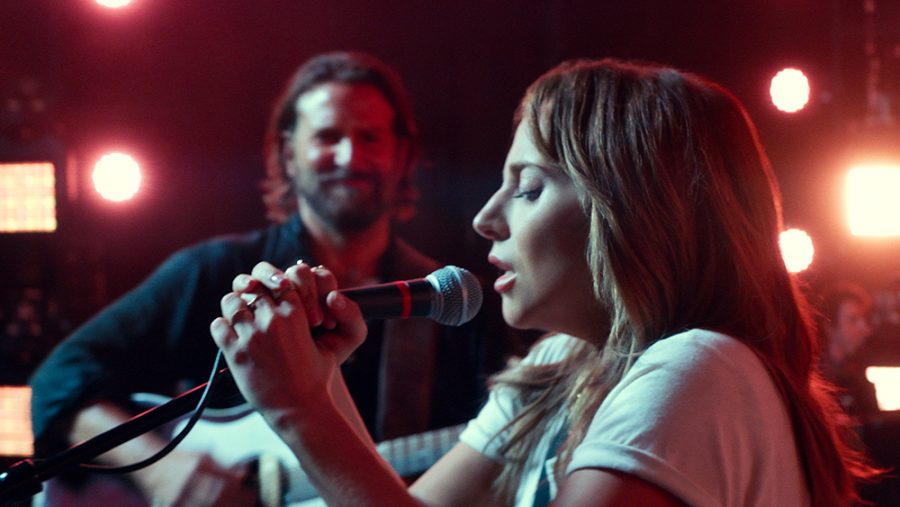Art Imitating Life: How A Star is Born Romanticizes the Power Dynamics of the Music Industry
February 18, 2019
Content Warning: discussions of sexual assault, abuse, and substance use
Article contains spoilers for A Star is Born (2018)
Last week, the New York Times published an exposé of singer-songwriter, Ryan Adams, in which several women accused him of sexual assault, abusive behavior, and manipulation. The article starts by saying that for years, Adams was seen as a champion for unknown female musicians, using his power in the music industry to boost their careers. According to the brave women who have come forward, this type of “mentoring” came with a price. Many of them, including an underage girl who had dreams of becoming a musician, talked about how Adams would use discussions of their careers and promises of recording to pressure them into sexual situations. Additionally, the article goes on to talk about Adams’ behavior in his intimate relationships. Singer-songwriter Phoebe Bridgers recounts the erratic and manipulative nature of their brief relationship, which she once described in a song as “emotional motion sickness.” Adams’ ex-wife Mandy Moore remembered how he would suppress her music career and tell her she was not a real musician because she didn’t play an instrument. She called his behavior “psychologically abusive.” It was only until this group of women realized that their stories all sounded similar that they felt that they could speak out against the singer.
This is just one account of how a famous man has used his power in the music industry to abuse and manipulate young women. It would take forever to go through them all.
Let’s talk about A Star Is Born.
Framed as a love story for the ages, Bradley Cooper stars as a tragic-hero musician with a dark past who, all of a sudden, falls in love with a talented, unknown musician named Ally, played by Lady Gaga. He shows this affection by repeatedly pursuing her, sneaking into her room and watching her sleep, making her come to his concert and saying that “he won’t take no for an answer,” and pressuring her into coming onstage with him to sing an unfinished song even though she repeatedly says that she doesn’t want to. Their romantic relationship becomes even more magical, especially when he tells her that she’s a sell-out, calls her ugly, repeatedly belittles her, and embarrasses her by getting drunk and peeing his pants onstage as she’s winning Album of the Year at the Grammys.
True, true love.
But seriously, all of this behavior is supposed to be seen as heart-wrenching and romantic. He’s a guy with a screwed-up past, and loves her so much, and is just trying to get through all of his problems so he can be in love with her. She’s just a girl, with a deep, complex personality, especially in how she spends most of her day to day life cleaning up after her boyfriend, helping her boyfriend work through his alcoholism, and listening to her boyfriend belittle her music career. After I saw A Star is Born, I felt like I was being gaslit by the entirety of Twitter, since everyone seemingly loved it and thought their relationship was beautiful and heartbreaking. Am I a cynic? Do I not know what love is?
Fortunately, others have talked about how toxic this movie actually is. Yes, this movie is a remake from the 1976 version with Barbra Streisand and Kris Kristofferson, and it would be hard not to acknowledge that the original plot came from a time where sensitivity towards themes of domestic violence and abuse was not as present. Still, in the an era where more and more survivors have been coming forward with stories of sexual assault, it’s irresponsible to present this tired narrative to the world and manipulate us into thinking that it’s about love. With the right angles, lighting, and manipulation of words, one of the horrific stories about Ryan Adams could easily look like A Star is Born, and women deserve better than that.















